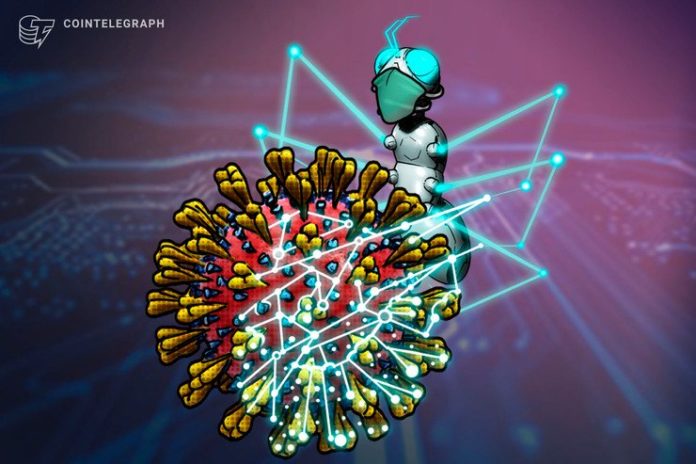[ad_1]
An Internet of Things (IoT) blockchain specialist and a healthcare data firm have teamed up to devise a solution for fighting the pandemic that complies with European data privacy laws.
On April 17, IoT blockchain startup Ubirch and Nasdaq-listed Centogene announced their partnership on a solution for securely handling the results of COVID-19 mass testing.
Volkmar Weckesser, CIO for Centogene — which has collected epidemiologic, phenotypic and genetic data for 500,000 patients worldwide to date — said that when combined with Uirch’s blockchain portal:
“[SARS-CoV-2] test results can be accessed everywhere in a forgery-proof manner ─ spearheading a return to normality.”
The right to privacy in the coronavirus era
The COVID-19 global crisis has led many privacy advocates to point to the blockchain as a key tool in the technological arsenal that can prevent an overreach of state-led biosurveillance.
Collecting and analyzing data en masse appears to be key to tackling the public health crisis — and encrypted blockchain systems can potentially help mitigate the worst effects of surveillance on individuals’ privacy, particularly when it comes to sensitive health data.
Yet there have been long-standing debates about how blockchain technology interacts with General Data Protection Regulation (GDPR), — a landmark European Union-wide legal framework for personal data privacy, which took effect in May 2018.
High-profile GDPR principles such as the right to be forgotten and the other far-reaching requirements the legislation places upon EU firms have sparked the question of whether blockchain networks — which are notably immutable, and thus do not erase data — can be made compatible with the framework.
The solution developed by Ubrich and Centogene ostensibly focuses on GDPR conformity:
“According to the highest data protection standards, user data is only stored as hash values on the blockchain and cannot be interpreted without user authorization.”
How the solution works
Alongside a blockchain portal, Centogene has also developed a SARS-CoV-2 test itself, which can be performed at the firm’s laboratories. Blockchain is then used to directly seal the test results virtually and provide individuals with a verifiable blockchain certificate, indicating whether they have tested positive or negative for the virus.
“This form of distributed security has already proven itself in other industrial environments,” the companies claim, adding that “the IoT-based procedure is ideally suited to secure and verify medical data.”
Ubirch and Centogene say that the blockchain portal will also be suitable for prospective proof-of-immunity requirements, based on antibody testing, providing users with a verified status that can help society to “swiftly lift the lockdown restrictions and move on to more targeted measures.”
As reported yesterday, the International Association for Trusted Blockchain Applications has just announced a partnership with the European Commission and University College London to coordinate blockchain solution providers addressing the coronavirus pandemic.
[ad_2]










